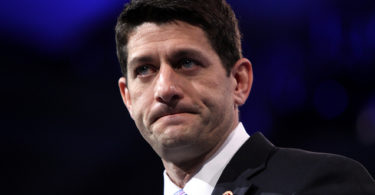A Supreme Court's 6-3 ruling in May struck down the 1992 federal law that banned sports gambling in most U.S. states.
By June, the Borgata Hotel Casino & Spa in Atlantic City, N.J., opened its sports-gambling book.
And MGM Resorts International (NYSE: MGM), which owns the New Jersey casino, rose quickly to the top of a crowded field of existing and speculative players, and for good reason.
Now, full-scale sports-gambling laws are already on the books in Nevada, New Jersey, and Delaware. Bills legalizing sports gambling recently passed in Pennsylvania, West Virginia, and Mississippi.
Fifteen other states have already introduced bills to get in on the action and gain a new stream of tax revenue.
This is going to be a massive profit opportunity based on the conversations I've had with analysts and politicians on the issue.
But it's not as easy as just opening the doors to new sports-betting customers.
In order for companies to dominate the gambling industry, one thing is going to be critical in the years ahead.
Scale.
Scale is vital to capturing market share in this emerging industry.
Sports-gambling operations need the largest possible audience in order to maximize profitability.
You see, a larger betting audience provides casino operations with a better view of odds and spreads on events.
Casinos make money off the “vig,” which is the amount it charges to make a bet.
Oddsmakers want minimal exposure to being wrong and having to pay out bets.
By having more data on how people are betting, as well as on the potential outcomes and payouts, it can set the betting structure even tighter to minimize losses and maximize profits.
That means organic growth isn't going to be the pathway to profitability…
Instead, the existing gambling titans will look to swallow up smaller players and capture their markets.
And we want to locate the undervalued assets that are easy targets for acquisition… and significant profit opportunities for us.
With tax reform as a major tailwind for the industry, larger gambling operations have more cash on hand and access to additional capital to engage in mergers and acquisitions in the year ahead.
Deal-making is already underway.
U.K.-based online gambling operation Paddy Power Betfair was the first company to strike, in May, with a 61% stake in fantasy sports operator FanDuel.
But MGM stands out because of its recent purchase of Empire City Casino and Yonkers Raceway, an $850 million deal that will seek to capitalize on potential sports and other forms of gambling just 15 minutes from the heart of Manhattan.
And looking ahead to its next deal, I wouldn't be surprised to see MGM snap up another company on the cheap given its attractive valuation and existing audience.
That's where you could make a 100% return…
Here's the Real Way to Get Rich from Sports Gambling
If I were MGM, I'd buy one of the most undervalued companies in the industry.
And that's Dover Downs Gaming & Entertainment Inc. (NYSE: DDE).
There are three reasons why Dover Downs is an extremely attractive play.
The first reason is the valuation.
The company is trading at roughly .53 of book value. This means that you can liquidate Dover Downs, and the sum of its assets are currently worth more than its market capitalization of $56.08 million.
It also trade at 7.53 times operating cash flow. We're looking for any number under 10 as a good proxy of value.
A lot of analysts like to use price-to-earnings ratio as a valuation method, but without cash, a company will die.
The company has also been paying down its debts in recent years. Looking at its debt levels, the Altman Z-score of 2.53 suggests an increasingly healthy organization. The general rule is that scores under 1.8 signal financial distress, while a score moving toward 3 is a sign that we want to pick up shares of the stock.
Given that DDE has been paying down debt and trending toward greater cash flow, the Z-score is moving to the right side of the curve.
The second factor is its operations.
This is a company that already had casino and race betting in place. When sports betting kicked off at Delaware Park, Dover Downs, and Harrington Raceway, the company was well ahead of the pack.
Dover International Raceway has two “Tripleheader” weekends each year that see more than 200,000 in attendance.
Having that many people in the vicinity of its new sports-gambling operations will provide a significant boost to its weekend revenue.
And given NASCAR's growing appeal in the Delmarva region, it wouldn't be surprising if the Speedway added more events to its calendar.
The third reason I'd want to own DDE now is in the executive suite.
One of the key qualitative metrics that I look at is an organization's succession plan… or lack thereof.
Dover Downs is a closely controlled organization by Chair Henry Tippie, who is 91 years old.
Four of the six board members (a very small board) are beyond 70 years old, which tells me a sale of Dover is far more likely than an overhaul of the board and its business.






